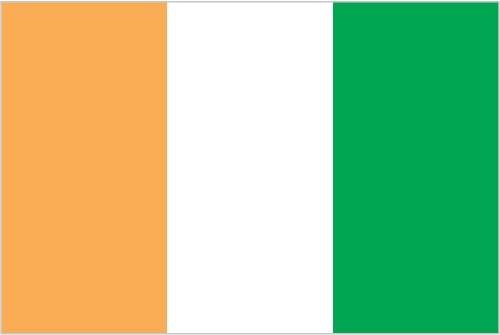Country Summary




Introduction
Background
Close ties to France following independence in 1960, the development of cocoa production for export, and foreign investment all made Cote d'Ivoire one of the most prosperous of the West African states. A military coup in 1999 led to two civil wars and UN troops remain to support a democratic transition process.
Geography
Area
total: 322,463 sq km
land: 318,003 sq km
water: 4,460 sq km
Climate
tropical along coast, semiarid in far north; three seasons - warm and dry (November to March), hot and dry (March to May), hot and wet (June to October)
Natural resources
petroleum, natural gas, diamonds, manganese, iron ore, cobalt, bauxite, copper, gold, nickel, tantalum, silica sand, clay, cocoa beans, coffee, palm oil, hydropower
People and Society
Population
28,713,423 (2022 est.)
Ethnic groups
Akan 28.9%, Voltaique or Gur 16.1%, Northern Mande 14.5%, Kru 8.5%, Southern Mande 6.9%, unspecified 0.9%, non-Ivoirian 24.2% (2014 est.)
Languages
French (official), 60 native dialects of which Dioula is the most widely spoken
Religions
Muslim 42.9%, Catholic 17.2%, Evangelical 11.8%, Methodist 1.7%, other Christian 3.2%, animist 3.6%, other religion 0.5%, none 19.1% (2014 est.)
Population growth rate
2.19% (2022 est.)
Government
Government type
presidential republic
Capital
name: Yamoussoukro (legislative capital), Abidjan (administrative capital); note - although Yamoussoukro has been the official capital since 1983, Abidjan remains the administrative capital as well as the officially designated economic capital; the US, like other countries, maintains its Embassy in Abidjan
Executive branch
chief of state: President Alassane Dramane OUATTARA (since 4 December 2010); Vice President Tiémoko Meyliet KONE (since 19 April 2022); note - Vice President Tiémoko Meyliet KONE was appointed by President Alassane Dramane OUATTARA before a Congressional meeting on 19 April 2022
head of government: Prime Minister Patrick ACHI (since 19 April 2022); note - Prime Minister ACHI resigned on 13 April 2022 and was reappointed by President Alassane Dramane OUATTARA before a Congressional meeting on 19 April 2022
Legislative branch
description: bicameral Parliament consists of:
Senate or Senat (99 seats; 66 members indirectly elected by the National Assembly and members of municipal, autonomous districts, and regional councils, and 33 members appointed by the president; members serve 5-year terms)
National Assembly (255 seats - 254 for 2021-2026 term; members directly elected in single- and multi-seat constituencies by simple majority vote to serve 5-year terms)
Economy
Economic overview
one of West Africa’s most influential, stable, and rapidly developing economies; poverty declines in urban but increases in rural areas; strong construction sector and increasingly diverse economic portfolio; increasing but manageable public debt; large labor force in agriculture
Real GDP (purchasing power parity)
$136.48 billion (2020 est.)
Real GDP per capita
$5,200 (2020 est.)
Agricultural products
yams, cassava, cocoa, oil palm fruit, sugar cane, rice, plantains, maize, cashew nuts, rubber
Industries
foodstuffs, beverages; wood products, oil refining, gold mining, truck and bus assembly, textiles, fertilizer, building materials, electricity
Exports
$13.79 billion (2019 est.)
Exports - partners
Netherlands 10%, United States 6%, France 6%, Spain 5%, Malaysia 5%, Switzerland 5%, Germany 5%, Vietnam 5% (2019)
Exports - commodities
cocoa beans, gold, rubber, refined petroleum, crude petroleum (2019)
Imports
$12.88 billion (2019 est.)
Imports - partners
China 18%, Nigeria 13%, France 11% (2019)
Imports - commodities
crude petroleum, rice, frozen fish, refined petroleum, packaged medicines (2019)
Exchange rates
Communaute Financiere Africaine francs (XOF) per US dollar -
Page last updated: Wednesday, November 16, 2022
